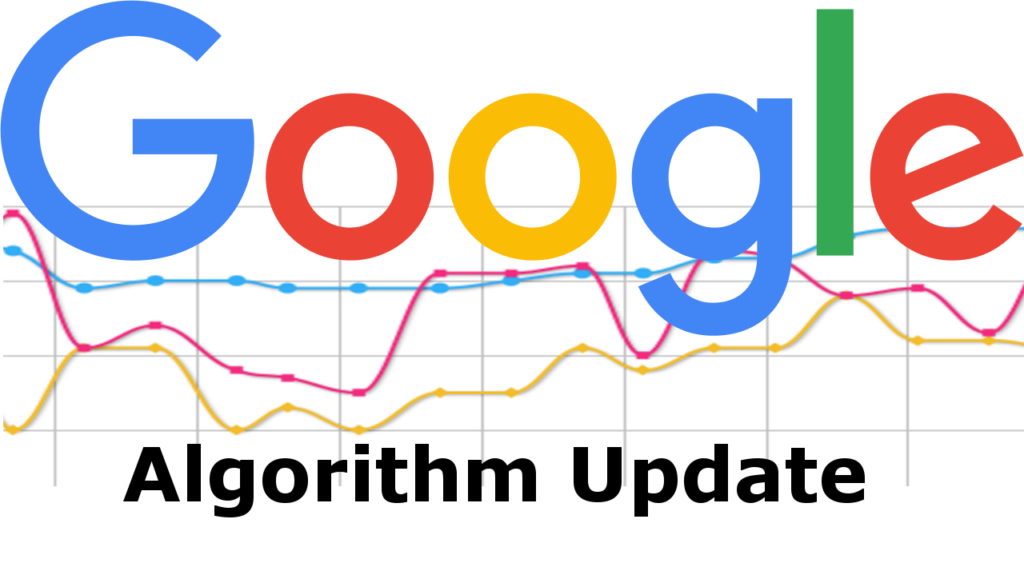Google Holiday Shopping Trends Study of 2019

Google Holiday Shopping Trends Study of 2019 Google has released new behavioural insights into 2019 holiday shoppers, with tips on how to sell to US consumers. According to Google’s data, mobile searches for “best deals” have grown by 90%. So it should come as no surprise that the #1 factor when consumers decide where to buy is whichever retailer has the lowest price. Consumers also appreciate being able to do what they want all on their own. Around 70% of shoppers say they like it when companies make it easy for them to do what they want without having to talk to anyone. It’s also interesting to note that searches around “rewards apps” and “Black Friday deals” are up 200% this year. Although consumers are getting their shopping started before Black Friday hits – 37% of holiday shopping has been completed before the week of Black Friday and Cyber Monday. Here’s a look at what influences US consumers most when buying goods online. Google Holiday Shopping Trends – Buying Decisions: Most Influential Factors Google separated its data into three categories: hard goods, soft goods, and everyday essentials. The most influential factors are largely similar across all categories. Here’s what influences US consumers most: > Lowest prices > Free shipping > Sales, discounts, & promos > Fast delivery > Free shipping > Product availability > Customer reviews > Estimated delivery date > Cross-store price comparisons > These factors were found to be least influential for US consumers: > Popularity on social media > Ability to share product pages > Ability to chat with the merchant > Non-credit card payments > Reviews from family/friends > Loyalty rewards program > Warranties > Customer store reviews > Brand/company based in-country This data can be used to guide your ecommerce marketing strategy with regards to where you should focus your efforts. For example, highlighting the fact that you offer lower prices than competitors is more important than emphasising you’re a US-based company. As Google says, “When you can beat the competition, make sure you show it.” Above all, Google recommends aiming for fast and free shipping when selling to US consumers. Consumers in the US are much more interested in fast shipping times than in-store pickup. For more data, see Google’s full study here.
What is SEO and How it Works?

What is SEO and How it Works? This guide will enable you to understand what SEO is and how it works. Those things might seem basic to some people, but there are still lots of people out there who aren’t sure about the inner workings of SEO and what it’s all about. That’s understandable, but it’s a situation that you should aim to change. And that’s what we’re going to help you and your business with today. SEO has an impact on just about every website out there. There’s no way to escape its importance or to skirt around its impact. Whether you like it or not, your website will perform better and so will your online business if you run one, if you get your approach to SEO right. What is SEO? So, first of all, let’s start with the most important question: what is SEO? SEO stands for search engine optimization, and that’s the process of making your website optimized in a way that allows it to achieve the best possible traffic numbers coming from search engine results pages. In particular, this traffic will predominantly come from Google. SEO might involve making changes to the design of your website or to the content of it. The best approach will cover both of those bases because they both have an impact on the outcomes your website experiences. The ultimate aim of the SEO game is to have your website or one of its page displays as a top result on search engine results pages for relevant keyword search terms. There’s a lot that goes into making that happen and it can all get pretty complicated pretty quickly, but at its heart, SEO is not all that challenging to get your head around. You need to view things from the point of view of the search engine algorithm. People running search engines want their users to be satisfied with the results they present to them; that’s their priority. You need to make your website a high-quality option so the algorithm selects it as one that it’s happy to present to search engine users. Search engines scan your website and make judgements based on what they find there. But when it comes to getting particular content or pages ranked high on search engine results pages, you need to think about on-page SEO, which we’ll talk about later. At its core, it’s about making sure that if you have a page about, for example, how to clean the interior of a car, people find that page when they search for “how to clean inside my car” or something similar. SEO Benefits There are lots of very important benefits associated with taking the right approach to SEO. As we mentioned above, it’s important than websites have visitors because that’s what they’re aiming for. With the best possible SEO strategy in place, you will not only get more traffic on your website, but it’ll be the right kind of traffic too. It’ll be targeted traffic, meaning they’ll be more likely to stick around and explore your website. Traffic is only useful if it’s the right traffic. Otherwise, people will arrive on your website, take one look at it and then immediately disappear and that’s obviously not what you want. It’ll also be organic traffic. How Does it Work? So, now you know what SEO is, why it matters and how your website will benefit from it, it’s time to talk a bit about how it works and some of the most important SEO factors you should know about and understand. Each of these factors will have an impact on your SEO outcomes, so read on to learn more. On-Page SEO On-Page SEO factors refer to all the things that happen on your actual website that impact SEO. For example, title tags are important because they essentially tell search engines what’s on your website and what it’s about. It should be short and contain vital information and keywords. You’ll also need to think about meta descriptions. These provide more details about what your web page is about and human visitors will be able to read it before clicking too. Search engines also understand your content better when you use subheadings. Alt tags, image names and internal links are all vital too. Off-Page SEO Off-page SEO refers to the factors that impact your SEO success that take place away from your website. Things like people linking to your content have an impact, as do the overall trustworthiness of your site in the eyes of Google and other search engines. Social media matters a lot too. If people who are considered influencers provide high-quality links to your content or they share it on their platforms, this will help your SEO massively. Great Content Content matters because it helps to attract the search engines. Search engines want to present information that they feel is relevant to searchers. So, having good content out there for people to find will provide a great entry point to your website for first-time visitors. Search engines will rank your website as a whole higher when it has relevant content on it as well. If you have engaging posts that other websites link to, it’ll give your site greater authority and it’ll be judged more favourably by the search engine algorithms. Black Hat vs White Hat SEO You should also know that there are two key approaches when it comes to SEO. The first is black hat SEO, which is about optimizing youend-users for search engines and often involves breaking rules and not really taking into account the end users. The other is white hat SEO, which is more about optimizing your website for the search engines in a more natural and organic way, which is better in the long-term. Now that you understand more about what SEO is and how it works, you can start applying these principles to your website. Doing so will help you benefit from the things we’ve discussed
A Productive Rant About Local SEO

A Productive Rant About Local SEO When looking at your options for an online marketing strategy, you are practically guaranteed to come face-to-face with the term search engine optimisation. However, it’s a topic that can get even more confusing on a closer look, rather than less confusing. There are many different terms and techniques to get used to. However, some deserve your attention more than others. Here, we’re going to look at one of the most valuable aspects of search engine optimisation, especially for small and growing businesses. We’re taking a lens on local SEO, what it is, how it works, and why it can be so important in the first place. What is SEO? For those who aren’t fully aware, SEO stands for search engine optimisation (also sometimes referred to as search engine marketing). The practice involves optimising your website in a way that makes it “search engine friendly.” As such, those search engines, like Google and Bing, are more likely to feature the website higher in their rankings, meaning that web users are more likely to see it. Google and other search engines prioritise which websites get closer to the top spot based on a range of criteria, including load speed, content relevance, site reliability, security, and a range of other things. Since Google looks at so many different things, SEO involves a mix of many different disciplines, as well. What is Local SEO? The aim and general premise of local SEO is the same as the overall practice. It’s an attempt to have your website and its various pages ranked more highly in response to relevant Google searches. However, as the name implies, it focuses a lot more on searches from customers and web users who are located closer to the business, or the business’s service area. It relies on writing good content, cleaning the site of errors and missing assets, ensuring it loads fast, and the like, just like regular SEO. However, it also involves making use of listings that highlight the specific location of your site, such as a Google My Site Page. Local content, social pages, and being featured in local directories and review pages can all help you promote your pages, products, and services to local customers. What you are missing without local SEO Even if you’re quite savvy with search engine optimisation and have no problem getting your pages to rank highly in Google, you could be missing out if you’re not also focusing on local SEO. Local SEO targets local users who might also be the most likely to convert. For brick and mortar businesses, those who are based locally are going to make up the majority of your customer base. If you’re neglecting them, your website might be getting a lot of clicks, but you’re not going to be getting too many conversions off those clicks. Local SEO is all about targeting those who are most likely to become customers in the end, making it a much better return on investment. The benefits of Local SEO Now you have a better idea of what local SEO is, how it’s used, and why neglecting it can be a mistake. But what about the benefits? There are many, and the following are only a snapshot of the potential value gleaned from this all-important strategy: Build your local online visibility: The primary goal of any SEO is to improve your visibility through Google. Local SEO makes you even more visible to local customers, meaning they’re a lot more likely to recognise the brand, to click the link, and to end up on your website, where you can end up converting them. Online visibility can also lead to foot traffic: Brand visibility leads to brand recognition, which can be essential for convincing your potential customers to make the first step. For instance, even if they have never been customers before, when they see your physical store, they may be more likely to step inside because they’re already familiar with the brand thanks to its visibility online. Make it easier for customers to find your support channels: Past customers could be looking for your website right now, looking for support or help with products and services. Local SEO makes it much easier for them to end up in the right place. As such, you can help with any issues they might be having, which leads to a much better relationship between your brand and your market. Ensure a website that works well: Many of the steps involved in search engine optimisation will improve your site. Better written content, working navigation, no dead images or links and the like all make a better user experience for your customers, meaning they’re more likely to get a positive impression of the business. Dominate the competition on Google: Simply put, the higher your website and pages land on Google, the further they’re going to push down the competition, helping you carve yourself a bigger slice of the local market. Key stats about Local SEO > Over 90% of all online business experiences start from the search engine. > 46% of all Google searches are looking for local information specifically. > 72% of all web users who conduct a local search will go on to visit a store within 5 miles of their location > 97% of people learn about local companies online first, compared to other means. > There are 900% more people performing “near me” searches in Google compared to two years ago. Is local SEO right for you? Choosing the right digital strategies means knowing what your business goals are and how to align your online marketing to them. As such, local SEO will benefit some more than others. However, if you’re a locally based growing business that could use more visibility online and is trying to grow your traffic and conversions, it undoubtedly needs to be part of your toolset. Direct Submit is a digital marketing firm that specialises in, amongst other services, local SEO.
Targeted SEO for your Business

Targeted SEO for your Business SEO is an essential strategy for any business owner. However, out of all the internet marketing strategies available, SEO takes the most work and time to get right. Once you lay the foundations correctly, you’ll have set the seeds for future traffic to arrive at your website. By creating an SEO-friendly website from the onset or from today, you’ll reap the benefits in the coming months and years. Working with an SEO company should be a transparent and collaborative process, that’s why at Direct Submit we don’t hide behind technical jargon. We provide an insightful interpretation of your data with every report and our team is always on hand to personally talk you through progress achieved. Our intimate approach is completely scalable, whether it’s working with a sole trader, a new business or building a close working relationship with a larger company. Our tried and tested methods will not only get your site ranking well in the search engine results pages but will help it stay there. We work with our clients to understand their business today and where they want to position themselves in the future. Simply put, our approach to SEO will is built around: » Key Phrase Research » Website Analysis & Compliance » SEO Promotion & Marketing » Linking Strategy » Ongoing Monitoring & Maintenance Direct Submit prides itself on the underlying process by which we approach each and every SEO project we are involved with. We understand that each client will have specific, individual needs and our approach in creating and implementing the correct SEO strategy is vital to the success of the SEO project. This approach and attention to detail are what has helped Direct Submit become a leading Search Engine Optimisation (SEO) company. Call us today on 0845 2722350 and let us use targeted SEO for your business to get your website working harder for your business.
Googles September 2019 Update

Googles September 2019 Update For the third time in 2019, Google has published a global update to its core algorithm. The September 2019 Core Update was – in keeping with the tradition established by its predecessor in June – officially pre-announced by Google. The roll-out began on the 24th of September 2019. This Google Update will apply globally, meaning that it covers all markets and search indexes, as it includes alterations to the core of Google’s ranking algorithm. Danny Sullivan, Google’s Search Liaison Officer, provided a few more details on the update, stating that the roll-out would take “a few days” to be fully completed and that the Google September 2019 Core Update would affect all global search indexes. However, Google is not expecting to announce the completion of the roll-out, because smaller updates are continually being introduced, and so declaring the update complete could create a misleading impression and create scope for false interpretation. Google Update September 2019: Impact and Analysis As of writing, there are not yet any real conclusions regarding the impact of the Google September 2019 Core Update. As mentioned, the roll-out is still ongoing, meaning that interpretation of any impact will be possible after a few days. We will take a closer look at the results on Monday, the 30th of September, by analyzing the latest data in the Searchmetrics Research Cloud. For any update analysis, we always stress that changes in rankings and SEO Visibility aren’t always a direct consequence of the update – more information is provided in our explainer, “Understanding Google Updates“. If you have already noticed changes to your website as a result of the Google Update, then we would be happy to hear from you via the comments under this blogpost. In August 2019, Google published a post on its Google Webmaster Blog. Here, they explained in more details which changes to the algorithm are made by Core Updates, and what webmasters and SEOs can do if they have been affected by a Google Core Update. If you see your rankings drop following an update, then you “haven’t violated [Google’s] webmaster guidelines nor been subjected to a manual or algorithmic action”. The changes are more focused on improving the evaluation of content. These changes can, according to Google, mean that websites that were previously unfairly overlooked, or not given the credit they deserve, now perform better – and vice versa. One analogy of how these Google Core Updates can be viewed could be a list of the 100 best films, published of 2015. A few years later, in 2019, the list can be updated – and it will likely change because new films have been released and the way we view older films may also have changed. Google’s recommendations for webmasters and SEOs whose websites have been affected by a Google Update are as follows: “We suggest focusing on ensuring you’re offering the best content you can.” When auditing a website, Google suggests considering questions regarding the following four aspects: > Content & Quality: Does the website offer original, high-quality content that isn’t just copied from somewhere? Are the page title and description appealing and do they reflect the content? If you were a webmaster, would you share the content with friends? > Expertise: Is the content trustworthy? Does the page contain errors? Would you, as a webmaster arriving at the page via Google search, trust the website you find? > Presentation & Production: Does the content seem to be well researched and well-produced – or does it seem to be mass-produced fodder? Are there too many ads? Does the page load appropriately on all devices? > Competitive comparison: Does the website offer added value when compared with its competitors? the content fulfill the user’s expectations? Of course, Google doesn’t provide any clear-cut, universally-applicable advice regarding what to do following a Core Update. However, a good place for webmasters to start is trying to answer these questions as honestly as possible – and compare their website alongside their competition, with a particular focus on the quality of the content they are offering.
SEO for Start-Up Businesses

SEO for Start-Up Businesses SEO – or Search Engine Optimisation – has been around for a long time. However, many start-ups still don’t recognise how SEO can improve their business and give it power – even if they are just starting out. If you are currently wondering about the benefits of SEO and how it helps with generating business, you’re reading the right article! Let’s take a look. Benefits of SEO For Small Businesses would include: Providing Accurate Customer Behaviour Data is important in the digital world, and when you startup, you won’t have any initial data to work with. SEO will come along then to help you to accumulate that data over time. The more you learn about SEO, the more you can learn about your potential customers and build that data up. Learning what your customers search for will help you to create better content and understand what you should be offering them. High Conversion Rates & Traffic Results When you start a new business, driving traffic and revenue isn’t always easy. Well-placed SEO can help you to get the traffic that you need as you rank even higher. You’re also able to optimise your website better, which gives you higher conversion rates and more revenue. You don’t have to advertise all your money on marketing strategies and other advertising avenues when you focus on SEO and best practice. Results Delivered When Done Right Small businesses must build a solid digital presence, but that’s not always easy to do no matter the industry you are in. When you use SEO tactics, you get the proper tools to provide the data you need to get your website in front of the right audience. Also, SEO doesn’t have to cost very much, so it’s a smart way to improve your business. It’s the perfect tool to build your brand. Generating Business Through SEO SEO has tons more benefits than the ones listed above, and there are plenty of ways that you can generate better business through SEO. Here’s how to do it: Optimise Your Content AND Your Home Page Keywords are vital to your success with SEO. You can get the attention of search engines and the right audience when you choose the right keywords. You need to weigh up whether you want to fill your website with high ranking keywords or low search volume ones. Those with low search volume can often get the attention of the search engines and your audience and it can be better for you to use these rather than one keyword with a high search volume. You’re in the thick of the competition, so optimisation is important and it’ll help you to stand out from the crowd. Ensuring that your content is optimised also includes backlinks being added from one webpage to another site. You can check out what your competition is doing and see what backlinks they’re using, and go from there! Responsive Website While you’re optimising your website, think about ensuring that it’s responsive across all platforms. Tablets and smartphones should be able to access your website without excessive scrolling. Your audience will instantly switch off if they find a competitor website that runs better than yours. Usability is important and you must create a website that looks great no matter what choice is made for the device. Local SEO Strategies You can claim listings to boost the audience for your website. The website alone won’t do the job and you need to create a web presence using online directories, too. These need to be updated regularly and be relevant to your business. Things like Google My Business can be used to aid local SEO, and if you want to drive traffic, you need these to rank well in search engines. People will always end up on an online directory so it doesn’t pay not to be involved. Your SEO strategy is going to take a lot of time and effort on your part, but the costs are low and that makes the time worth it. The rewards are excellent, too, and it can put your business on the map. If you are still waiting around to figure out what to do about your search engine optimisation strategy, you need to consider the above benefits and how you can raise your business profile by being more visible online. SEO for Start-Up Businesses Done Correctly SEO is only going to benefit your business when done right, and you can ensure that this is the case for you by working with the right company. If your business relies on traffic from the search engines, and it would benefit from the increase in traffic better rankings could deliver, we can help. Direct Submit are a digital marketing agency that specialises in all thing’s SEO. Set up over 15-years ago, we have been continually adjusting and tweaking our proprietary SEO strategies, which has made us leaders in our industry. Call Direct Submit today on 0845 2722350 or visit our websitevisit our websitevisit our website for further information on how we can help your business grow and develop with effective SEO or Search Engine Optimisation.
What are Local SEO Citations

What are Local SEO Citations Google and other search engines need tools that they can use to identify businesses and direct users to them who type relevant keywords into the search bar. To do this, search engines use “citations.” A local SEO citation is any information on the internet which identifies features of a company, such as its name, address, or telephone number. You can find business citations all over the web: on the company’s website, social media accounts, and business directories, like Yelp. Search engines collate all of this information and use it to identify a business. The better the agreement between sources, the less ambiguous the company’s identity and the higher the page ranking. What Types of Local SEO Citations Are There? Citations fall into three categories. • Those on local business data platforms. Google’s business data platform is Google My Business. There are others too, including Localeze and Acxiom. • Geographic and industry-specific listings. Some directories represent specific industries, such as chambers of commerce or guilds. Companies in the relevant trade can list their details with these industry bodies. • Citations on the wider web. Some companies can earn citations in popular publications, including news sites, blogs, and government databases. Why Do Local Citations Matter? There are two generally accepted reasons why local SEO citations are important. Improve Local SEO Local SEO, or search engine optimisation for keywords that use local search terms relies heavily on citations. The mentions of a company in relation to a specific geographic area tell search engines that it should feature high in search results. The quality and number of citations for your company can have a dramatic influence on the rank of your webpages for specific, local search terms. Citations can include all sorts of information about your business. Alongside your business name, address and phone number, they can also include tag lines, your business category, opening hours, driving directions, email addresses linked to your company, fax numbers and so on. When search engines crawl the web, they look for patterns in company data, seeking out firms with the highest number of mentions. Firms with citations on authority websites also benefit too. The better the sources of company citations, the higher Google and other search engines will rank it. If details about your company are on trusted sites like Yelp or Forbes, then you will rank higher than a competitor whose details aren’t. Improve Customer Experience There’s a second, less appreciated but no less critical reason local citations matter: customer experience. Local citations make it easier for your audience to find you and get in touch. By providing business information in multiple places across the web, you make it easier for people to find out about you through their preferred platform. When citations are accurate, people can quickly find you and get in touch. When they are not accurately, it can negatively affect your reputation and lead to a loss of revenue. Why You Should Include Citations in Your Marketing Plan Many businesses neglect to include a citations strategy in their marketing plan. There are several problems with this. First, the business risks inaccurate citations. Anyone can cite your company online, potentially leading to errors. Furthermore, the details about your business may have changed over time, but you have not made the necessary corrections to various sites holding information about your company. Your opening hours, for instance, may have changed, but you might not have updated this across your website, social media and public directories. The second issue is that you do not develop any strategies for identifying inaccurate data. Again, this hurts both your ranking and reputation by muddying the waters. Neither Google nor your customers are entirely sure how, when and where you do business. Third, without a proper strategy place, you lose control over how you’re represented on the web. Ideally, all of the publicly available information about your company should be accurate today, not out-of-date or ridden with errors. Many companies, therefore, take an active approach to local SEO citations. Proactive strategies offer a host of benefits, including the ability to weed out inaccurate data. Take the example of a company that has just been through a merger or acquisition. After the M&A process, it’s highly likely that several local citations have changed. An active plan enables you to make the necessary adjustments to your online profile so that it doesn’t affect your ranking characteristics. Businesses that have been through a rebranding can benefit from citation management too. An active approach to citations allows you to weed out all the mentions of your old brand and update them with your new one. You don’t want past references to your company sticking around after you change the name or appearance. You want to present a consistent brand. If you are unsure how to include citations in your marketing plan, get in touch with us today on 0845 2722350 or visit the Direct Submit to learn more.
SEO Tips to Get You Noticed

SEO Tips to Get You Noticed With each progressing year, SEO rules and guidelines are changing rapidly and each year it gets tougher to get your business noticed in the major Search Engines. One way or the other, it’s turning into arduous for peoples to find out which search engine optimisation methods to implement and which to discard. Right here we’ll list a number of the most necessary search engine optimisation tricks to observe within the 12 months 2019 if you wish to enhance your web site rating without getting hit by any Google Penalty or Algorithm Updates. SEO Tips to Get You Noticed > Start with optimising your site for mobile devices. > Understand how users search. > Write for humans, optimise for search engines. > Analyse your existing search traffic. > Stay up-to-date with the latest changes in SEO. > Learn the most important ranking factors. > Invest in quality content marketing. You’ve probably seen (and turned away from) articles that include hundreds of SEO Tips to Get You Noticed. Those guides are useful if you have the time and energy required to devote weeks or months to your SEO project. Our goal at Direct Submit, however, is, with this guide, to help you focus your efforts where they’re needed most. Of course, that’s not to say that the above tips are easy to employ. They’ll still take time and effort. But we believe they are SEO tactics that are here to stay. So time invested will continue to pay dividends for you, for years to come. You’ve most likely spent a lot of money on getting a website that ‘sells’ your products/services, but what good is it going to do your business if people don’t see it? If your business relies on traffic from the search engines, and it would benefit from the increase in traffic better rankings could deliver, we can help. Our services are affordable & scalable, helping clients harness the power of digital marketing at highly competitive rates. Our flexible solutions help brands nurture relationships with customers and drive sales fast. It’s time to transform your business and become a leader in your industry. It’s time to transform your business and become a leader in your industry. With offices in both Durham and Newcastle, we can help you do just that through Digital Marketing and Search Engine Optimisation (SEO). Get in touch with us on 0845 2722350 or visit our website for a free SEO analysis.
Google Ads to Remove Average Position Metric

Google Ads to Remove Average Position Metric on September 30 Google announced that the average position metric is getting removed from Google Ads starting the week of September 30. It has been known since February that Google had plans to sunset the average position metric, but we didn’t have an exact date until now. Google’s wording – “starting” September 30 – makes it sound as though the metric will be gradually removed from peoples’ accounts. As a result of the average position metric getting removed, the following features will also be disabled: • Rules using average position • Custom columns using average position saved reports that filter on average position • Saved filters with average position Lastly, Google notes that the average position metric will be removed from saved column sets, saved reports that use the average position column, and scorecards that use average position. Google is removing average position after introducing two new metrics that provide a clearer view of where ads actually appear in a SERP. Those metrics include absolute top impression and top impression. Absolute top refers to the very first position in a SERP, while a top impression refers to any position within the top set of paid listings. In an announcement in February, Google said: “With the availability of these new metrics to understand prominence, we plan to sunset average position in September of this year. If you currently use average position, we recommend that you start using these new metrics when measuring and optimizing for prominence.” Going forward, Google recommends, for Google Ads, using these new metrics as an alternative to the average position metric.
Google Not Able to Index New Content

Google Not Able to Index New Content, Again Google has confirmed that as of yesterday that it is unable to index new content across the web. There is a bug that Google said is “impacting some sites.” Google said: “We’re aware of reports of indexing issues that are impacting some sites beginning earlier today. We’ll provide another update when we have more information to share”. But it is bigger than some sites. Search Engine Land have said that “from our view, this seems much larger than just “some sites.” Clearly Google is eager to fix any indexing issues, because Google wants to surface the most recent content from publishers. For Google to not show breaking news from the Washington Post, New York Times, Wall Street Journal and other popular magazines is something Google probably isn’t too happy about. URL Inspection tool bugs. Related to this, Google said the URL Inspection tool within Google Search Console is also having issues. Google said on Twitter, “We recommend waiting for this issue to be resolved, and then checking the URLs later on. Thanks for your patience & sorry for the inconvenience!” So if you wanted to try to manually submit your URLs to Google’s index through the tools inside of Google Search Console, you would be out of luck. If Google is not able to index your new content, and if a lot of your Google traffic comes from fresh content, then your traffic will likely see a decline through the duration of this bug. This may also have an impact on your Google Search Console performance reports, so keep that in mind as well.
